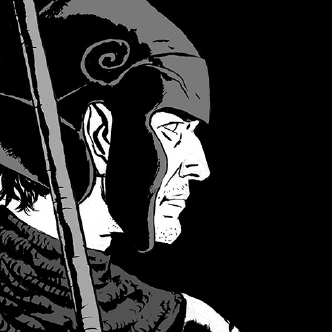Rainer Werner Fassbinder - brief musings on a large life
- Jarek Kupść

- Jul 11, 2023
- 2 min read
Fassbinder’s life feels like a plot from one of his own films. To borrow a phrase from Bob Fosse’s All That Jazz, "this cat became numero uno game player to the point where he didn't know where the games ended and the reality began. Like, to this cat, the only reality... is death, man."

How do you make 44 feature-length films in 13 years, write and direct plays, act, love, and just live? Ali: Fear Eats the Soul (1974) was made in two weeks as an exercise in technique just to kill time between other projects. It remains a flawless film, one of the best of New German Cinema – a period teeming with brilliance.
His first hit with the critics was Why Does Herr R. Run Amok? (1970), a largely improvised middle-class critique. It anticipated Michael Haneke’s obsessions by 20 years, yet remains stronger and more truthful than anything by the clinical Austrian maestro. Even at his bleakest and most nihilistic, Fassbinder remained an incorrigible humanist (In a Year of Thirteen Moons, 1978).

Stylistically, his films are as varied as his subjects. Some feel rushed and chaotic (Despair, 1978), other slick and glossy (The Marriage of Maria Braun, 1979). There is no clear aesthetic thread running throughout Fassbinder’s oeuvre other than compassion for the outcast. The director embraced homosexuality, Gastarbeiter alienation, prejudice of all kinds, and emotional despair of forlorn women. Germany’s Nazi past looms large over some of his films, but is never addressed as directly as in Lili Marleene (1981), made towards the end of his life.

It's no surprise that Fassbinder found inspiration in the German expat Douglas Sirk (Hans Detlef Sierck, with Dutch roots). Sirk’s only child, Klaus Detlef Sierck, was killed in WWII on the eastern front. The wistful, melodramatic streak that runs deep through Sirk’s Hollywood films is always touching, even when it borders on kitsch. Big emotions painted with bold colours are primary to several Fassbinder’s films. Pedro Almodóvar, almost Fassbinder’s contemporary, owes him, and Sirk, a great debt.
The ironic influence of Fassbinder on the US media is exemplified best by the name of the far-right news channel program Fox & Friends, cluelessly mirroring the title of a great gay-themed drama Fox and His Friends (1975).

Fassbinder went out with a bang: Querelle (1982), based on Jean Genet’s novel, is so personal, so cryptic and narratively messy, it would be impossible (and unnecessary) to find its logical point. It also happens to be visually astonishing in its deliberate artifice – a fitting epitaph Fassbinder created for himself.



Comments